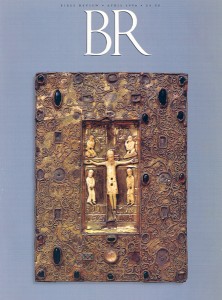Lex Talionis and the Rabbis
The Talmud reflects an uneasy rabbinic conscience toward the ancient law of talion, “eye for eye, tooth for tooth.”

The rabbis unanimously declare that all injuries (but not death) inflicted on persons are subject to compensation. How then do they grapple with the law of talion in Leviticus 24:17–20: “If anyone kills any human being, he shall be put to death. One who kills a beast shall make restitution for it: life for life. If anyone maims his fellow, as he has done so shall it be done to him: fracture for fracture, eye for eye, tooth for tooth. The injury he inflicted on another shall be inflicted on him.”
Discussions in the Talmud reflect a troubled rabbinic conscience concerning talion, “an eye for an eye.” In the following quotations, biblical verses are in bold-face and quotations from rabbinic texts called baraita (very early legal arguments and rulings that are contemporaneous with the Mishna, about 200 C.E.) are in italics. These passages are very tightly reasoned arguments that are typical of the Talmud and illustrate why the Talmud is so difficult to study and why an understanding of it is so richly rewarding. The following passage is from Tractate Baba Qama of the Babylonian Talmud:
“Why [monetary compensation]? God said ‘An eye for an eye’ (Exodus 21:24). Why not take this literally?
Already a library member? Log in here.
Institution user? Log in with your IP address.

